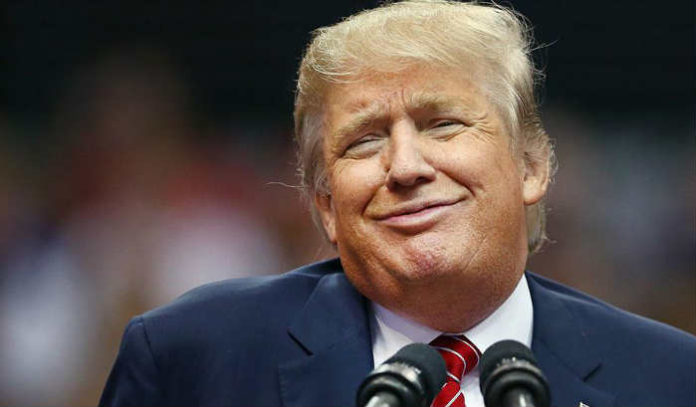International negotiations on climate change have been a bright spot amidst a gloomy year for global cooperation. Brexit, the Syrian crisis, massive forced displacement, underfunded humanitarian relief, and right-wing nationalist rhetoric have all challenged the idea that countries can achieve collective progress on issues that transcend their borders.
The successful negotiation of last year’s Paris agreement, while only a first step to delivering real climate action, has been a rallying cry for the international community. These climate negotiations have served to contain a potentially explosive conversation riddled with accusation, blame, and demands within a relatively amicable framework of working groups, high-level speeches, and goodwill gestures.
But Donald Trump — who built his candidacy on an “anti-globalism” platform — has taken direct aim.
If Trump follows through on his pledge to remove the United States from the framework — by scrapping the Paris agreement or withdrawing from the U.N. Framework Convention on Climate Change altogether — he could also invite a slew of legal challenges and economic penalties from climate vulnerable countries that want to hold the world’s second largest carbon polluter accountable for the damage climate change is already inflicting on their populations.
These conversations are happening in the corridors of the 22nd Conference of Parties in Marrakech, Morocco, said Saleemul Huq, a senior fellow at the International Institute for Environment and Development from Bangladesh, who has supported least developed countries’ engagement in the climate negotiations process.
“As long as you’re in the UNFCCC negotiating with us, then it’s fine. We’ll come to an amicable settlement. The moment you withdraw means you’re no longer negotiating with us, the victims of you, the polluter. We’re going to come after you,” Huq said.
Countries experiencing impacts from climate change that exceed their ability to adapt — islands that become unlivable due to sea level rise or farmland lost to desertification, for example — are trying to quantify their “loss and damage,” a topic of growing importance as record global temperatures inflict real harm on climate vulnerable communities.
Legal action for climate damages has been very difficult to achieve, but if the U.S. removes itself from those discussions, Huq named a number of actions climate vulnerable countries could take to hold the U.S. accountable.
“We’ll have sanctions. We’ll go to the International Court of Justice … We’ll confiscate your ships when they visit us. There are many, many ways short of going to war that we can attack a country for being a rogue state,” he said.
Huq isn’t the only one to apply the “rogue” label to a potential climate-denying Trump administration that reneges on the U.S. government’s existing commitments.
‘It would be a tragedy for the United States and the people of the United States if the U.S. becomes a kind of rogue country, the only country in the world that is somehow not going to go ahead with the Paris agreement,” Mary Robinson, Ireland’s former president and U.N. special envoy on El Nino and climate, told the Reuters Foundation this week.
French presidential candidate Nicolas Sarkozy has also proposed a penalty on U.S. inaction, calling on Europe to impose a carbon tax on American imports if Trump follows through on his plan to back away from climate talks.
Others see a longer term storm brewing if developed countries such as the U.S. don’t follow through on their climate commitments — and if developing countries continue to bear the ever-increasing brunt of extreme weather, drought, and sea level rise.
“If nothing concrete or radical happens in the next 10 or 15 years, I won’t be surprised if you see a huge movement against the developed world,” said Harjeet Singh, international climate policy manager for ActionAid. “You’ll reach a stage where developing countries would say, ‘we’ll just ban all your multinational companies.’ These things do come up,” Singh said.
Source: Devex
























